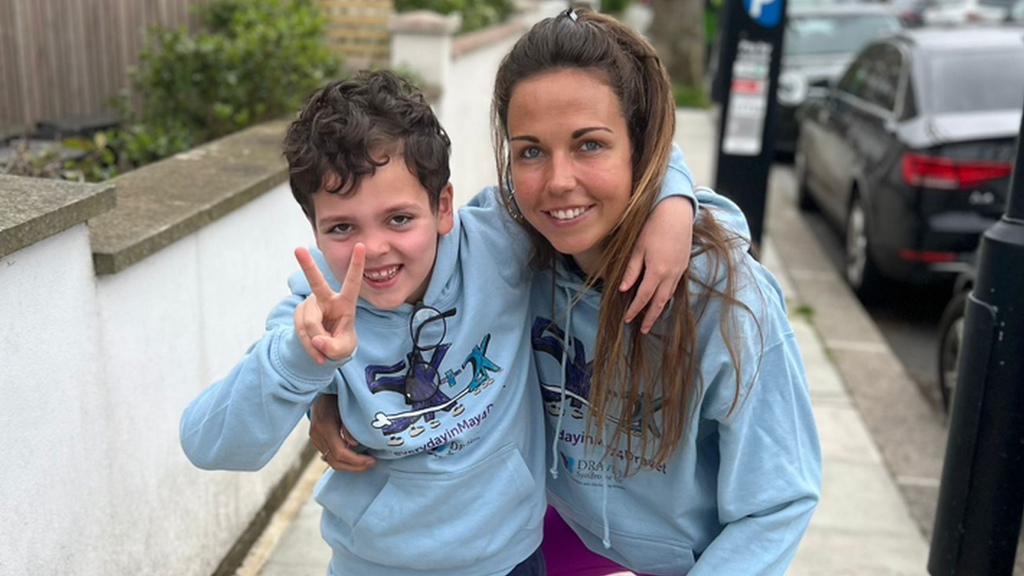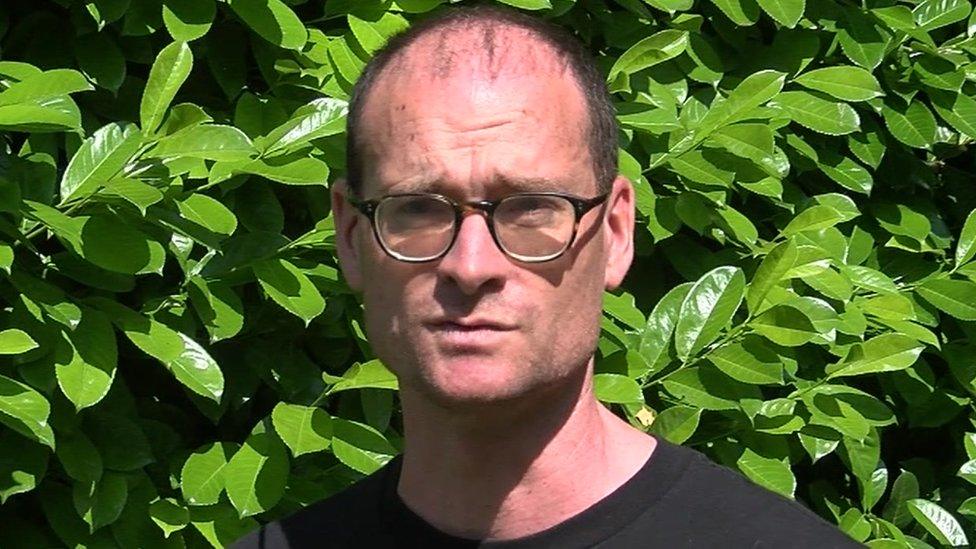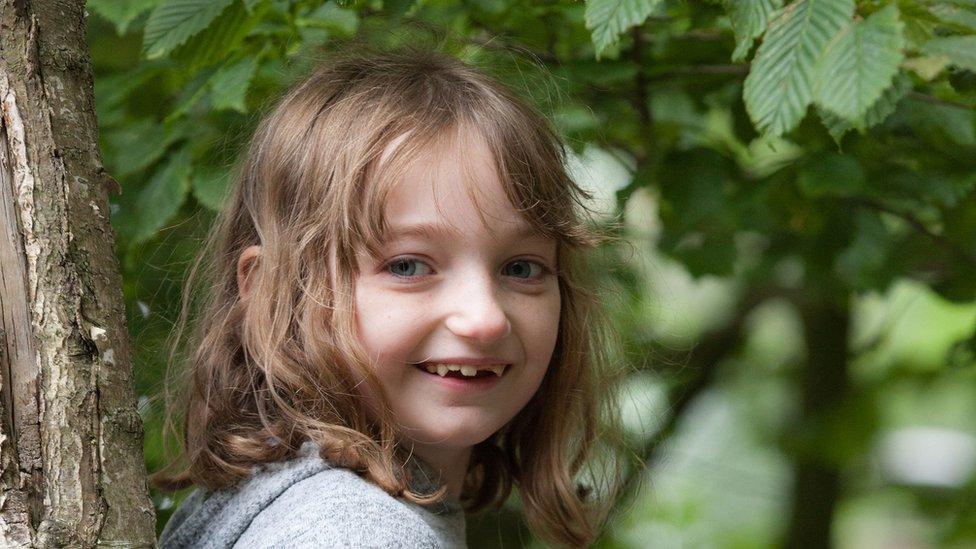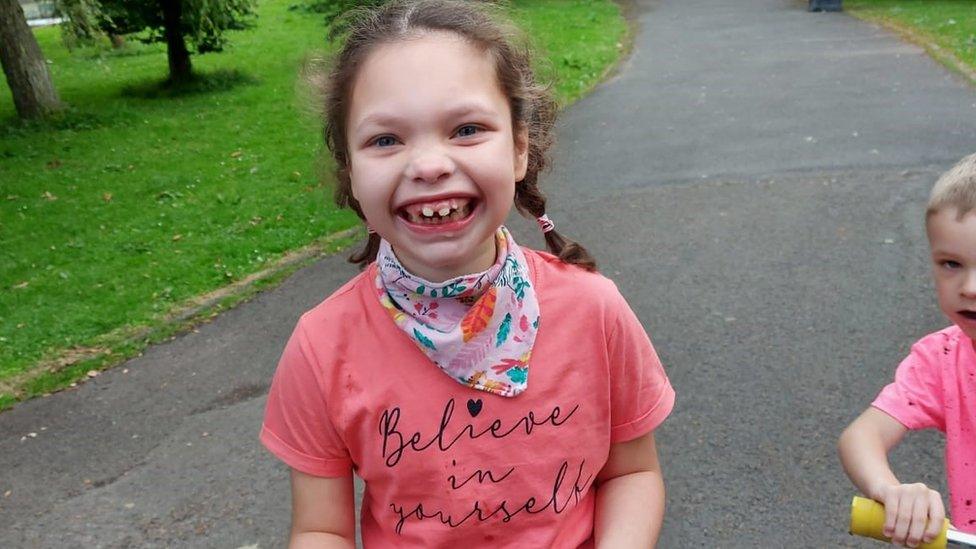Woman raises awareness and funds for Dravet Syndrome families
- Published

Tamara Ward set herself the challenge to help people with Dravet Syndrome that her nephew Dominic lives with
A woman's campaign supporting families living with an extreme form of epilepsy has raised £240,000 across the UK.
Tamara Ward, from Middle Barton, Oxfordshire, was inspired to set up a running challenge in support of her nephew and others with Dravet Syndrome.
It is a rare genetic condition that affects about one in every 15,000 people in the UK.
Hundreds of people have taken part in the runs, sometimes joining Ms Ward and her family.
Mrs Ward was unable to visit her nephew seven-year-old Dominic during the Covid lockdowns, which inspired her to organise the Run 5km Everyday In May For Dravet challenge in 2021.
She has run 5km on each day of May every year since, which she describes as "a massive commitment".
"What's really nice about it is if someone gets an injury or has been ill for a few days, the rest of the team will pick up their kilometres, so the team work is amazing," said Mrs Ward.
Dravet Syndrome is a rare, life-limiting genetic neurological condition that causes treatment-resistant epilepsy alongside a spectrum of associated conditions including autism, ADHD and difficulties with speech and mobility.

Tim William told the BBC about the challenges he faces raising a son with such complex medical needs
Dominic's father, Tim Williams, said his son needed attention "every moment of every day".
"If he has a seizure, he needs to have emergency medication immediately and usually an ambulance needs to be called," he explained.
"That's really difficult, particularly at night time. We have other children as well... so it's a challenge."
Galia Wilson, who is the chair and trustee of Dravet Syndrome UK and has a son with the condition, took part in the challenge.
She said raising awareness to healthcare professionals was important as there were people affected but without a diagnosis.
"It's also important for us to find families that are living in isolation without the support that our charity could provide them," said Ms Wilson.

Follow BBC South on Facebook, external, Twitter, external, or Instagram, external. Send your story ideas to south.newsonline@bbc.co.uk.
Related topics
- Published2 July 2022

- Published8 January 2021
